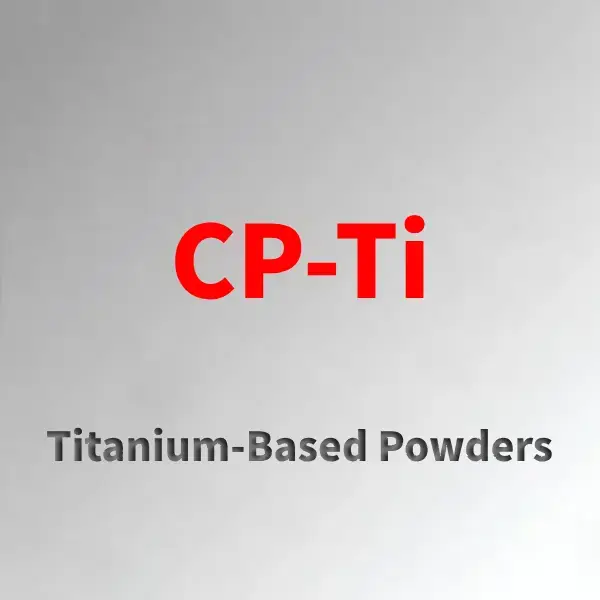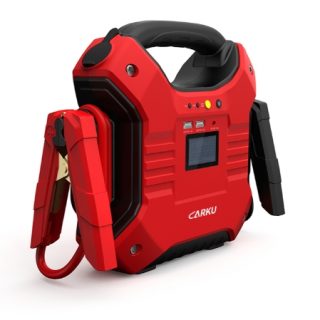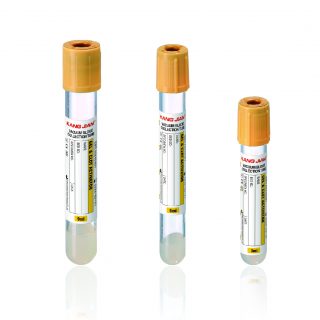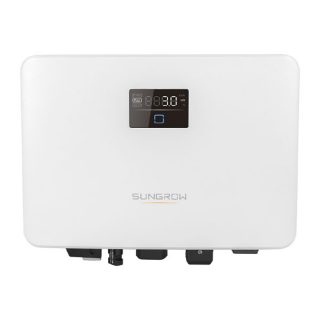CP-Ti
US: Gr.1, Gr.2, Gr.3, Gr.4
GER: 3.7024, 3.7034
RUS: Grades: BT1-00, BT1-0.
JPN: Grades: Class 1, Class 2, Class 3, Class 4
Overview Of CP-Ti
CP-Ti metal powder refers to commercially pure titanium powder (≥99.5% Ti) which is categorized into four grades (Grade 1 to Grade 4) based on purity levels, used in additive manufacturing, powder metallurgy, and biomedical applications. Known for its excellent biocompatibility, corrosion resistance, and moderate mechanical strength, CP-Ti is widely employed in aerospace, medical implants, and industrial tooling。
Grade 1 CP-Ti
Physical Properties:
● Density: 4.51 g/cm³
● Thermal conductivity: 17–21 W/m·K
● Elastic modulus: 105–110 GPa
Mechanical Properties:
● Tensile strength: 240–370 MPa
● Yield strength: 170–310 MPa
● Elongation: 24–30%
Key Characteristics:
● Purity: Highest purity (≥99.5% Ti) with minimal oxygen (≤0.18 wt%) and iron (≤0.20 wt%) content.
Applications:
● Biomedical implants (e.g., dental screws) due to exceptional biocompatibility.
● Chemical processing equipment requiring high corrosion resistance.
Grade 2 CP-Ti
Physical Properties:
● Density: 4.51 g/cm³
● Thermal expansion coefficient: 11.7–12.3 × 10⁻⁶/°C (20–400°C).
Mechanical Properties:
● Tensile strength: ≥540 MPa
● Yield strength: ≥485 MPa*
● Elongation: ≥21%.
Key Characteristics:
● Composition: Slightly higher oxygen (≤0.25 wt%) and iron (≤0.30 wt%) compared to Grade 1.
Applications:
● Aerospace components (ASTM B863 compliant).
● Additive manufacturing (AM) for molds and medical devices due to high recyclability and low oxygen content.
Grade 3 CP-Ti
Physical Properties:
● Density: 4.51 g/cm³
● Thermal conductivity: 16–20 W/m·K
Mechanical Properties:
● Tensile strength: ≥620 MPa
● Yield strength: ≥550 MPa
● Elongation: ≥18%.
Key Characteristics:
● Composition: Higher oxygen (≤0.35 wt%) and iron (≤0.30 wt%) for enhanced strength.
Applications:
● Structural parts in marine and chemical industries.
● AM components requiring moderate strength-to-ductility balance.
Grade 4 CP-Ti
Physical Properties:
● Density: 4.51 g/cm³
● Elastic modulus: 110–115 GPa
Mechanical Properties:
● Tensile strength: ≥740 MPa
● Yield strength: ≥680 MPa
● Elongation: ≥15%
Key Characteristics:
● Composition: Highest oxygen content (≤0.40 wt%) among CP-Ti grades, with iron ≤0.50 wt%.
Applications:
● High-stress components in aerospace and automotive sectors.
● Surgical implants requiring high strength but limited by stress shielding concerns.
Comparative Analysis
|
Property |
Grade 1 |
Grade 2 |
Grade 3 |
Grade 4 |
|
Oxygen (wt%) |
≤0.18 |
≤0.25 |
≤0.35 |
≤0.40 |
|
Iron (wt%) |
≤0.20 |
≤0.30 |
≤0.30 |
≤0.50 |
|
Tensile Strength |
240–370 MPa |
≥540 MPa |
≥620 MPa |
≥740 MPa |
|
Elongation |
24–30% |
≥21% |
≥18% |
≥15% |
|
Key Applications |
Biomedical |
Aerospace/AM |
Marine/AM |
High-stress |
Critical Performance Highlights
Corrosion Resistance
● All grades form a stable TiO₂ passive layer, resisting crevice corrosion in chloride-rich environments (e.g., Ringer's artificial body fluid).
● Grade 2 shows superior performance in aerospace due to controlled oxygen content.
Additive Manufacturing Suitability
● Grades 2 and 3 are optimized for AM with spherical morphology (15–53 μm), low satellite content, and high flowability.
● Recyclability: Powders can be reused up to 10 cycles without significant degradation.
Biocompatibility
● Grades 1 and 2 are preferred for implants due to low modulus and minimal ion release.
● Grade 4's high strength is offset by stress shielding risks in bone implants.
Standards and Certifications
ASTM B348: Specifies chemical requirements for CP-Ti grades.
ASTM F67: Governs unalloyed titanium for surgical implants.
ISO 5832-2: Medical implant material standards.






Reviews
There are no reviews yet.